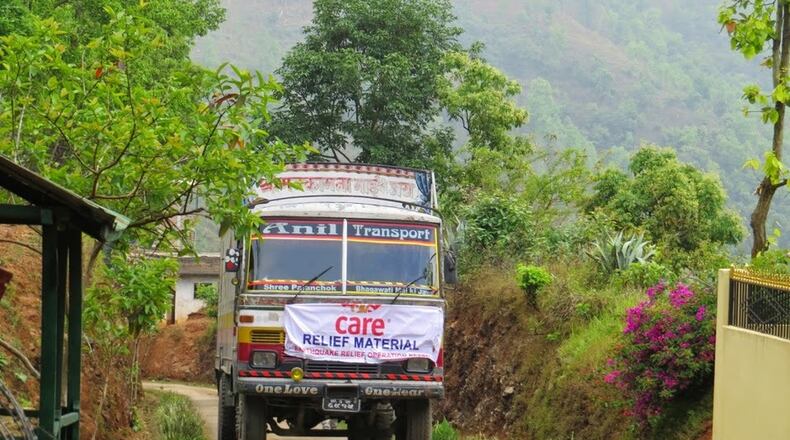MAP International
Habitat for Humanity International
American Red Cross
www.redcross.org/what-we-do/international-services/where-we-help/asia/nepal
Tracy Wise has parachuted into some of the world’s worst disasters — Sri Lanka after a 2004 tsunami; Gaza, after heavy fighting last August; and Liberia during the Ebola crisis.
Wise, part of CARE's emergency response team, recently deployed to Nepal, where two major earthquakes — weeks apart — have devastated the Himalayan nation, causing more than 8,000 deaths and massive damage.
The worst part is watching the people who have been most affected try to rebuild their lives and mourn loved ones lost in the tragedies.
“I was more affected by seeing the reactions to the earthquake, both at work and at the hotel, than I was by the earthquake itself,” she said in emails and a telephone interview. “The terror of the people around me, who had been through this experience just two short weeks ago, was clear. They were so discouraged that attempts to get back to normal were set back.”
CARE is among several Georgia-based nonprofits that are playing a critical role in helping Nepal after the earthquakes. Wise’s job, for instance, is to help determine what’s needed in terms of water, sanitation and hygiene for the areas affected.
“A big part of my role is making sure that we don’t just get focused on infrastructure — how many water schemes were damaged or destroyed — but that we are getting the different needs of households and groups,” she said. “How are women able to clean or dispose of used sanitary napkins and cloths? Will families be willing to spend their limited resources on soap for hand-washing when having to replace other lost assets?”
Other organizations and the local Nepali community are pitching in as well through donations or boots on the ground.
MAP International, a faith-based relief organization based in Brunswick, is working with other groups to reach hard-hit areas. MAP already has enough supplies and medicines, such as antibiotics, oral rehydration salts and wound care items, on the ground to treat 60,000 people for the next 90 days and has medicines and supplies en route to treat an additional 60,000.
President and CEO Steve Stirling has visited Nepal several times.
“The medical supply chain becomes difficult when you’re trying reach remote areas in need of medical aid,” he said. “Even the healthy can get sick in tent cities, and we need to provide antibiotics to prevent serious illness.”
Habitat for Humanity International also has staffers on the ground — some are Atlanta-based and some are from the regional office in the Philippines — to assist with assessments, establish operations and provide shelter assistance.
The organization is working with the government there and coordinated through the Shelter Cluster’s network of humanitarian agency partners. Habitat is removing rubble and debris and plans to help 20,000 families with transitional and permanent shelter assistance.
It’s a difficult task.
When CARE’s Wise, who lives in Atlanta, arrived after the first quake, she didn’t even know where she would lay her head. Perhaps in a hotel or the tent she carried for use in the heavily hit areas outside of Kathmandu. After the second quake, she slept on the lawn of her hotel.
“You think that you feel the earth moving under your feet again, and wonder whether it is real or imaginary,” Wise said.
Stress can affect the helpers, too.
“You’re going to have to be flexible, know that it’s going to be hard and not like anything you’ve experienced at home, but you’re there to do a job,” Wise said.
Maintaining a “safe space” is critical to keep stress levels down. To do so, she tries to stay connected to her fiance in Atlanta and plans meals during down times with other aid workers in Nepal.
About the Author
The Latest
Featured



